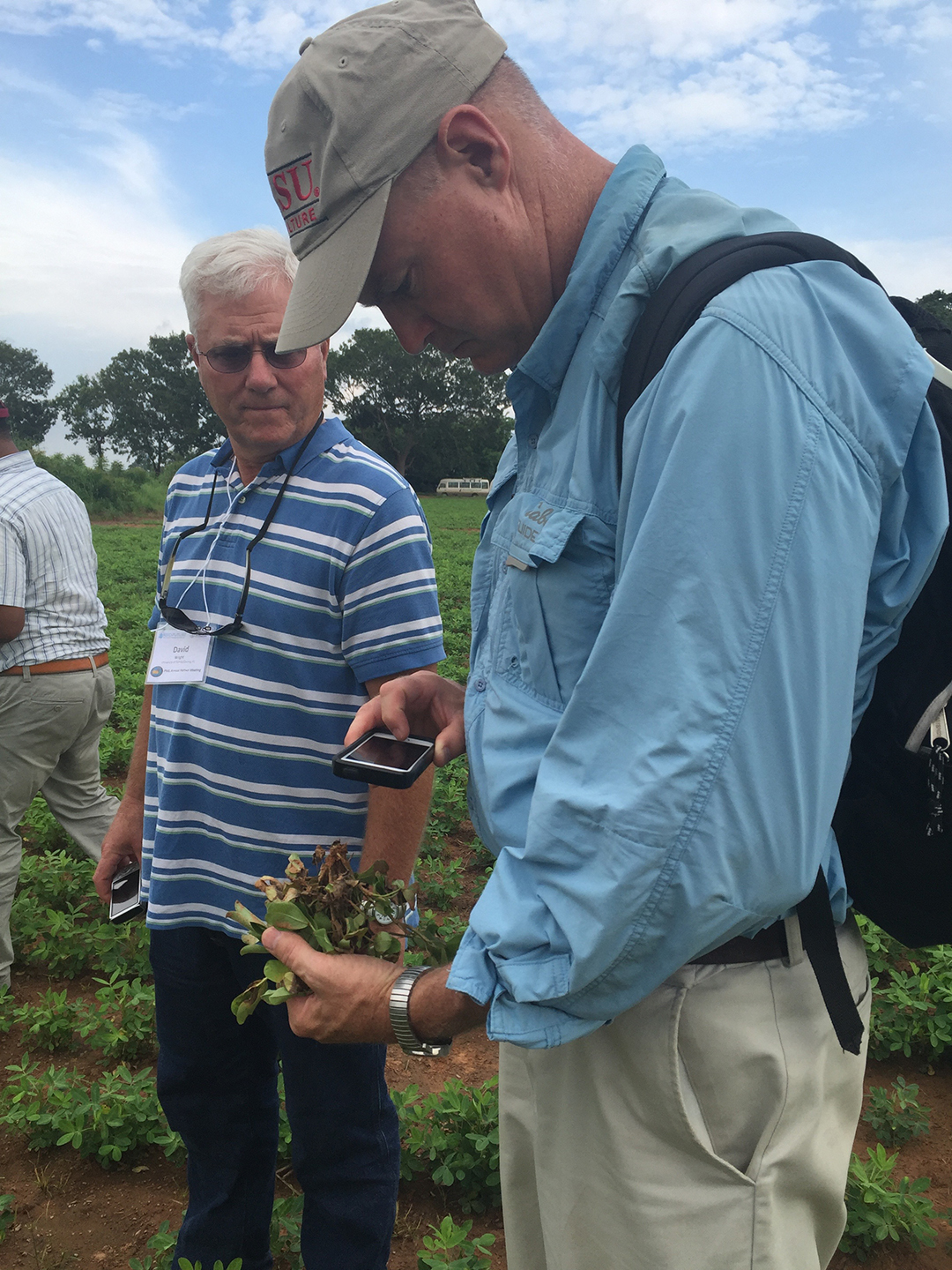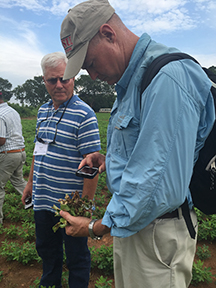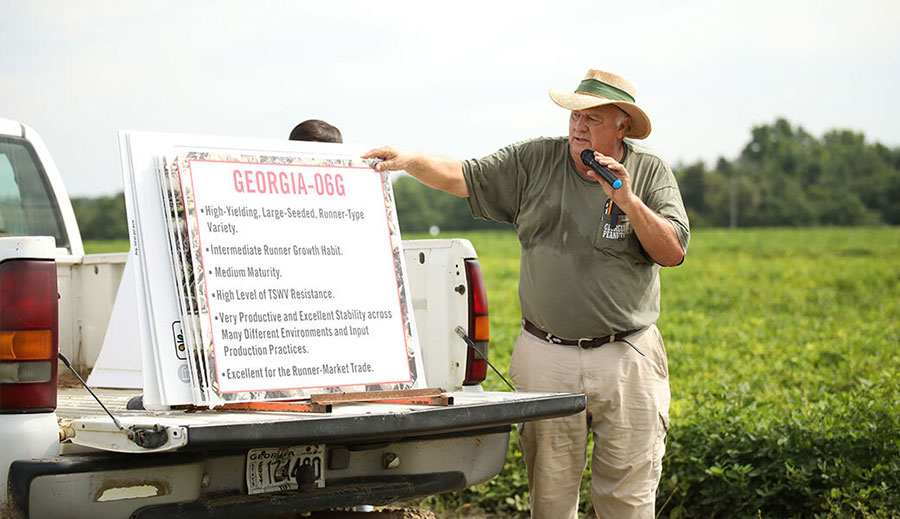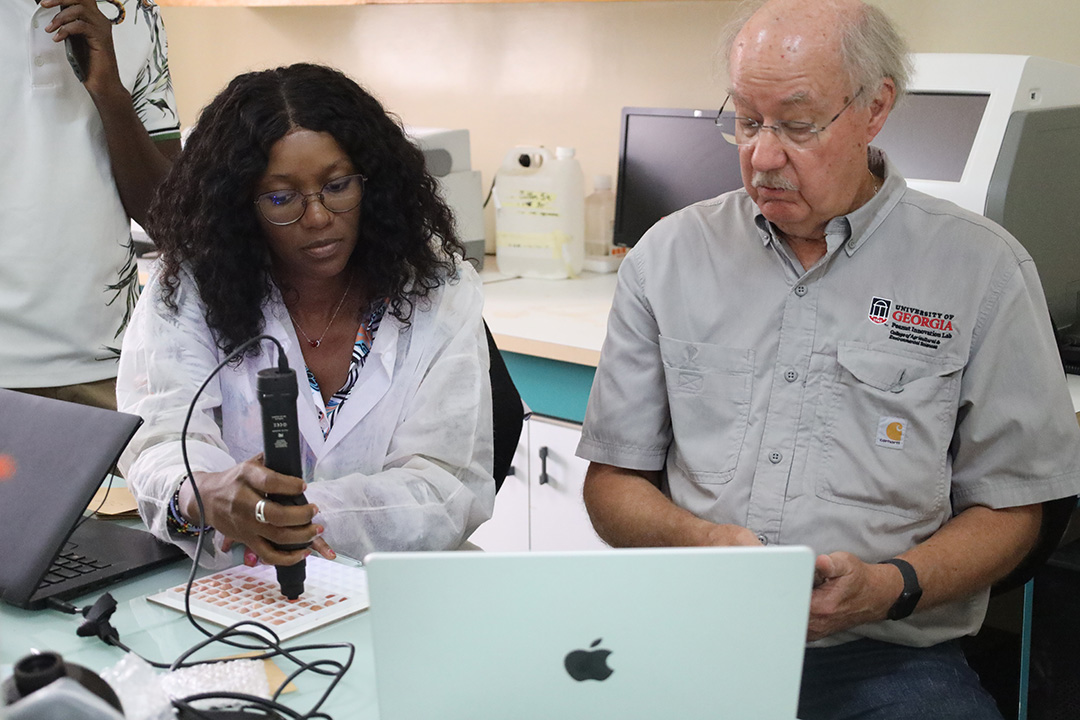Researchers in North Carolina have updated a risk assessment tool that empowers peanut farmers there to decide when a pest, weed or weather condition threatens yield enough to invest in fighting it.
Along with updating the Peanut Risk Tool to be more usable in North Carolina, the work will make the resource available to extension specialists in other countries, as well, giving them the same ability to forecast risk and reward in the field. The project is funded through the Feed the Future Innovation Lab for Peanut in the University of Georgia College of Agricultural and Environmental Sciences.
The North Carolina Peanut Risk Tool pulls together different stresses that might impact yield in a given year, allowing extension agents and farmers to see how threats may interact with one another and to make wise decisions about inputs and other investments. A particular pest might be threatening any time, but combined with other circumstances – late planting and dry weather, for example – could be devastating in a particular year. Knowing how circumstances will work together to impact the crop can help farmers decide when to take action.
The tool was originally developed around 2005 with support from the North Carolina Peanut Growers Association and the USDA.
“We had a written Peanut Information Guide, but as people began having greater internet access and electronic tools became more popular, we asked whether that guide could be incorporated into a risk tool,” said David Jordan, a North Carolina State University peanut extension specialist and principal investigator of the Peanut Innovation Lab’s risk tool project and another to create production packages for peanut in Ghana.
Farmers worry about individual pests and problems, but also understand how multiple circumstances working together can make circumstances worse. Weighing the big-picture risk, farmers can consider the cost and benefit of each input, but it’s challenging to see that big picture without a tool.
“All of the key elements were in the (older) written guide, but searching through the various chapters for answers to complex questions about how pests and practices interact could be challenging,” Jordan said.
The risk tool made analysis easier and was popular for several years, but was limited by the computer language and code used to create it. Extension specialists couldn’t update the information and maintaining the tool became more cumbersome, because only a limited number of computer coders could do it.
Jordan had an idea: If scientists could modernize the North Carolina risk tool and make it so that anyone could update it, not only would North Carolina farmers benefit, but the tool also could be exported to other places and used by extension specialists and farmers facing very different challenges.
“Now, people like me can update the information regularly and keep the tool current and applicable,” Jordan said. “In the process people at other institutions across the
globe can take the tool and the instructions and make their own tool.”
Refining the data to go into the tool – deciding how much weight to give certain pests – can push researchers to think about how stresses compound in the field and agree on the effects.
“Making the tool forces scientists to build consensus. A number has to be entered in a category and cooperating scientists have to think across subject matter disciplines and climates. That’s an important intangible that the risk tool fosters cooperation through its construction,” Jordan said.
The Peanut Innovation Lab provided funding to update the North Carolina Risk Tool as part of a quick-start project commissioned when the five-year innovation lab program started in 2018.
Using the platform developed at North Carolina State University as a starting point, Jordan and other PIs can apply the technology to help develop risk tools for other countries. Work already is under way to develop a risk tool for Ghana, based on good agricultural practice maps and crop calendars for the production systems in two regions of the country. The proposed project will use the experiences with risk tool development in Ghana and North Carolina to develop risk tools for Malawi, Senegal, and Uganda.








